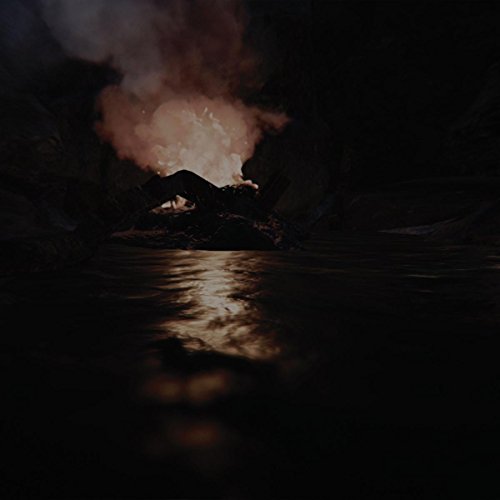
Brood Ma
Daze
Release Date: Feb 19, 2016
Genre(s): Electronic, Techno, Pop/Rock, Experimental Techno, IDM
Record label: Tri Angle
Music Critic Score
How the Music Critic Score works
Buy Daze from Amazon
Album Review: Daze by Brood Ma
Great, Based on 8 Critics
Based on rating 10/10
When I say 'virtual reality', you may think of an impossible parallel plane, as presented in The Matrix. That is, a deception so life-like and thorough that no casual occupant could perceive the difference between the illusion and the reality. It’s frightening, because our sense of self is at stake – what if the person we 'really' are gets sucked in, and transformed into something else? Fortunately, we tell ourselves, such a complete otherworld doesn’t yet exist.
Based on rating 4/5
DAZE presents a fabricated future juvenilia. Albeit, it’s a future more present than it suggests, based upon a fantasyland, a place of make-believe — an industrial invention more real than nature itself. “Disneyland tells us that technology can give us more reality than nature can,” observed Umberto Eco, and DAZE is a duly fanatical and rabid land of hyper -isms, overexcited and overstimulated, where meaning is assumed by nostalgia and a nuclear proliferation of fictitious truths are passed down.
Based on rating 8/10
While Brood Ma has had some moderate success over the past few years as an electronic artist, his name recognition seems fairly low. Unlike some other artists signed to the label Tri Angle, like the Haxan Cloak who has caught the attention of both critics and Björk, Brood Ma has been slightly slept on. Luckily there’s hope for him as what better way to fix his problem than with a commercial album? Okay, maybe it’s less of a commercial album than an album with a statement to make on commercialism.
Based on rating 8/10
On Daze, London-based producer Brood Ma (James B. Stringer) constructs a punishing, darkened soundscape that is aurally equivalent to the most intense Hollywood action films or shoot-em-up video games. The entire continuously flowing 27-minute release feels like being in the center of a particularly fast-moving, violent first-person RPG, with explosions and hit point-draining sneak attacks at every corner.
Based on rating 7.5/10
There was a time when you mostly knew what to expect from a Tri Angle release, even if the sound was notoriously hard to describe. But the New York/London label has evolved in the six years since its founding. Rather than gravitate toward artists whose music pours from speakers like molasses, Tri Angle is now just as likely to sign acts that mix bass music, techno, and noise in unpredictable ways (so long as the atmosphere mostly remains sufficiently chilly).
Based on rating 7/10
Having generated a certain amount of buzz through his previous two digital-only albums and his association with tastemakers Quantum Natives (who re-released his second album POPULOUS on their Hemlock Recordings label in 2014), third album DAZE effectively sets the scene for a major breakthrough by Brood Ma, alias of London-based musician James B Stringer. Difficult to pin down genre-wise, DAZE flirts with post-industrial, noise, dubstep and electro-punk, but finds Stringer pursuing a vision all his own — one of dystopian war and destruction, the aural equivalents of billowing smoke and crumbling buildings exploding in your headphones. This is an album light on melody and heavy on tone and mood, and it's dark throughout, Stringer manages to render it in enough distinct shades to make it an exciting, if austere, listen.
Based on rating 2.9/5
Lots of new hybrid club music sounds like Hollywood sound design put to a beat. James B. Stringer makes this explicit. His latest album as Brood Ma criticises the mass media's "current obsession with survival playtime," through which the imminent destruction of the human race is packaged as entertainment in films and video games.
Opinion: Fairly Good
It could just be me, but there seems to be a new trend to label records that barely stretch beyond 25 minutes in duration as "albums", which, although I don't want to come across as some sort of uptight snob, is misleading at best. There can be cases, such as Consumer Electronics brittle full-on assault Estuary English, where brevity helps underline an album's power and impact: in the case of Estuary English, the ferocity of the group's depth charge blend of brutalist techno and lyrical misanthropy would be hard for them to sustain over an extended duration. But more often than not, as with, for example, Delroy Edwards' Teenage Tapes from 2014, it's hard to escape the sense that you're being fobbed off with an EP masquerading as an album, something which colours any appreciation of the sounds within with a sense of being cheated.
'Daze'
is available now

